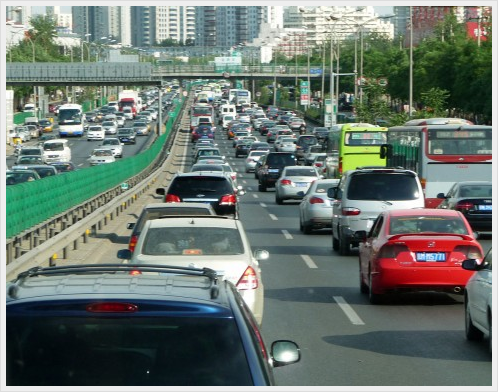
Photo: Beijing-Clean-Air-Action-Plan
Beijing unveils Clean Air Action Plan
13 October 2013
by Richard Forster
Beijing’s municipal government has unveiled a Clean Air Action Plan (2013-2017) that outlines a variety of measures the city will take over the next five years to prevent and control vehicle exhaust pollution.
“The new action plan is comprised of eight emission reduction projects, as well as an additional six measures to ensure the plan’s implementation,” explained Fang Li, Deputy Director of the Beijing Municipal Environmental Protection Bureau. “Reducing air pollution brooks no delay, albeit a great challenge for us.”
Notably, the plan calls for a 5 percent decrease in vehicle fuel consumption from 2012 levels by 2017. In order to achieve this goal, the Beijing Municipal Commission of Transport will pursue the following objectives:
- Regulate the number of new cars on Beijing’s roads. By the end of 2017, the number of cars within the municipality of Beijing should be less than 6 million.
- Expedite the development of public transport. The length of the metro system is projected to reach 660 kilometres by 2015, and the mileage of the bus lane network should reach 480 kilometres by 2017 under current City estimates. Moreover, the city has set ambitious targets for the uptake of public transport, which should account for 52 percent of total travel and 60 percent of total motorised travel by 2017.
- Increase the number of public transport vehicles running on clean technologies. In 2017, the proportion of buses powered by electricity, natural gas, and fossil fuels will reach the ratio of 2:5:3, respectively, within the city’s Fifth Ring Road. Furthermore, 200,000 new, clean energy vehicles will be deployed in the city by 2017.
- Apply stricter motorised vehicle emission standards and accelerate the scrapping of older motor vehicles. At the end of 2015 vehicles that fail to meet the European 1 standard for exhaust emissions should all be scrapped.
- Improve public management policy to enhance air pollution prevention.
The Clean Air Action Plan will also improve air quality through cutting coal consumption, promoting clean energy use and reducing production capacities with heavy pollution. The plan aims to cut annual coal consumption by 13 million tonnes and keep it within 10 million tonnes by 2017, compared with 23 million tonnes in 2012. The city will also slash its cement production capacity to 4 million tonnes by 2017.











